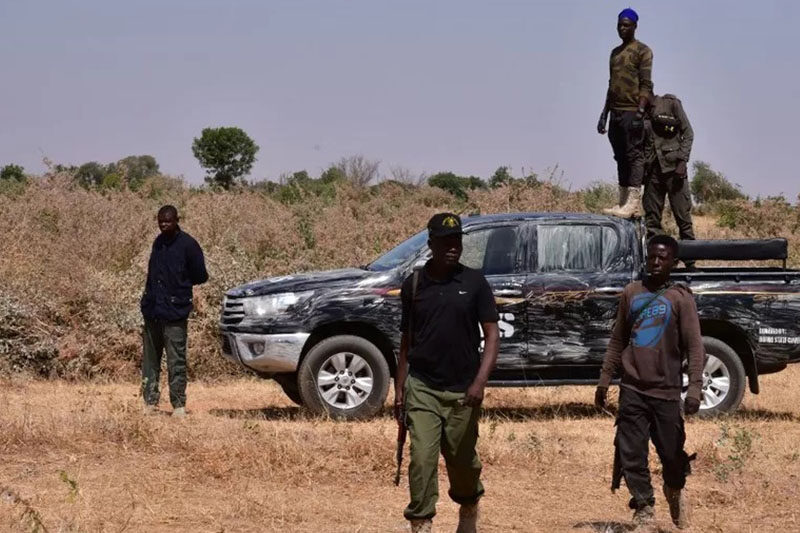Three humanitarian staff members of the Family Health International (FHI 360) organisation and two security guards have been abducted by suspected Islamic State West Africa Province (ISWAP) insurgents in the Ngala Local Government Area of Borno State.
Residents of Gamboru Ngala town say they are angry because the non-profit organisation (NPO) does excellent work and they are concerned that the abductions will obstruct its work and might even result in it withdrawing from the area.
FHI 360 works at improving the health and wellbeing of people, especially in places affected by insurgents in northeastern Nigeria.
So far, there has been no official statement from FHI 360 regarding the abductions.
The military and/or police authorities have also not issued a statement.
FHI 360 staff members in Maiduguri or Ngala are not allowed to speak to the media but it is expected that the organisation’s headquarters in Abuja will release a statement soon.
However, Channels Television quoted a source, apparently a health professional at FHI 360, who said: “They are our staff; we woke up on Wednesday morning and couldn’t find them. We live together in the lodge, but we didn’t hear any sound or noise that would have raised alarm.”
Residents are begging the government to beef up security in the local government area.
Hassan Asandari, a resident of Gamboru Ngala town, told RNI that gunmen, thought to be ISWAP insurgents, stormed the offices of FHI 360 on Wednesday, April 26, at about 1am.
“The gunmen abducted three humanitarian staff members and two security guards. The three staff members arrived at the organisation’s offices by helicopter the day before, so they were new to the area. They did not even have time to settle in. It must have been very frightening for them.”
Asandari said there had been no abductions in the town for at least a year.
“Residents have been living peacefully without any threats of violence and without fear. Then, suddenly, we have this abduction. It’s very scary. We don’t want things to go back to the way they were. And that’s why it is so important for the government to increase security within and outside the town, so that we don’t have to fear more attacks.
Ibrahim Modu, also a resident, said: “We are very scared and frightened following the abductions. The suspected ISWAP insurgents entered the town under the cover of darkness and took the staff in the early hours of the morning. We don’t know how they were able to do so because we have soldiers, civilian joint task force members, as well as other security operatives in the town.
“The community leaders and traditional rulers know what happened but they say they cannot do anything about it. There are forests nearby the town and the perpetrators must have come from there. We are frightened that if the government does not provide more security the attacks by insurgents will start again. We have lived peacefully for about a year now. We don’t want to go back to being terrified for our lives again.
“We need more security personnel to safeguard our lives and property and to ensure more incidents of this nature do not occur again.”
Modu said apart from more stringent security measures, the residents also wanted the government to investigate the matter thoroughly and find out who the assailants were so that they could be punished.
“The government needs to punish these people so they know they cannot continue to attack us. They need to know that there are severe consequences for their actions.”
- FHI 360 is a global organisation that mobilises research, resources and relationships so that people everywhere can access the opportunities they need to lead full, healthy lives. Its staff of about 4,000 experts work in more than 60 countries around the world. FHI 360 has worked in Nigeria for more than 30 years, reaching all 36 states through interventions in health, civil society, nutrition, water, sanitation and hygiene (WASH) and education.
SHETTIMA LAWAN MONGUNO






